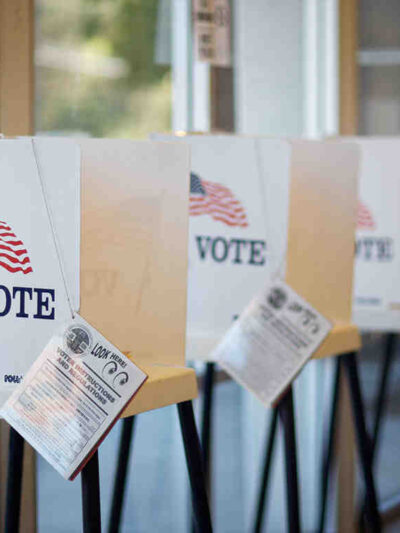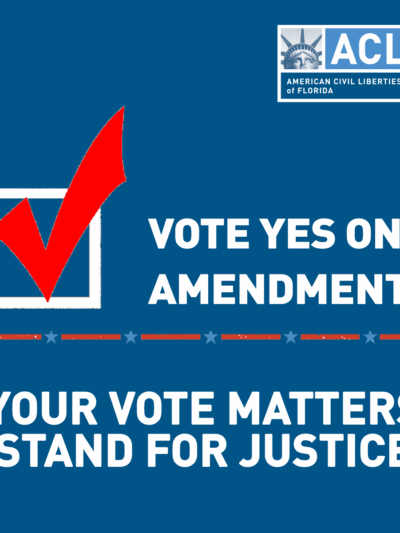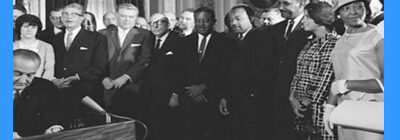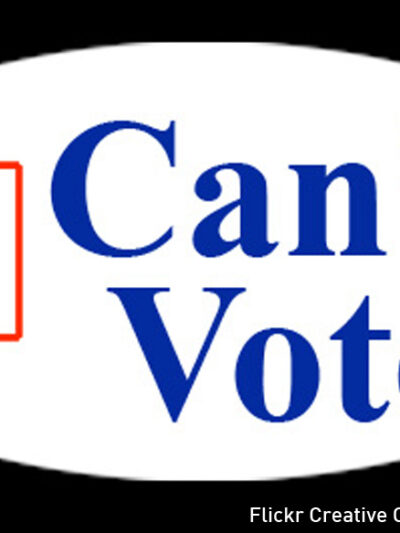News & Commentary
With Hurricane Michael Barreling Down on Gulf Coast, Florida Unconstitutionally Refuses to Extend Voter Registration Deadline
Voters should not have to risk their lives in order to register to vote. Yet, in Florida, that's exactly the position that the state has chosen to put tens of thousands of people in.

Feel like you're at risk? Here are some resources for you.
The 2016 election is over, but the rhetoric and acts of hate targeted at specific groups following Election Day has left many of us feeling at risk.
In the ten days following Election Day, the Southern Poverty Law Center tallied more than 900 hate incidents across the country – many targeting Black people, immigrants, Muslims, and Jewish people.
We want to make sure that you know your rights and have access to the resources you need. Please check out these resources below to get information from the ACLU about what to do if your rights are violated.

ACLU of Florida Recommends Voting YES on Amendment 2
There's a lot at stake in this election. Besides electing our future leaders, Floridians will vote on statewide initiatives that will strongly impact your civil liberties and civil rights. While the American Civil Liberties Union is nonpartisan and does not endorse candidates, we do weigh in on ballot measures that affect our civil rights and civil liberties.
By voting “YES” on amendment 2, you’re putting healthcare decisions back into physician’s hands. Our legislators have recognized that marijuana can be used as medicine by passing Charlotte’s Web Law and the Right to Try Act, but those laws are not enough.

‘Home’ Is Not Where You Are Involuntarily Confined
By Sean J. Young, Staff Attorney, ACLU
Earlier this week, The New York Times published a column asserting that the American Civil Liberties Union has “seemed to take “opposite position[s]” in two voting rights disputes. This is wrong.
In the first dispute, which is pending before the Supreme Court, the question is whether states should be allowed to count all persons for the purposes of equally apportioning their legislative districts, as nearly all states currently do. The ACLU filed an amicus brief answering yes, for our country has long embraced the fundamental principle that all persons, whether or not they can vote, are entitled to equal representation. Given the democratic values of inclusion and equality built into the Constitution, we reject our opponents’ argument that this same Constitution now forces all states to exclude all ineligible voters from their population counts. Millions of non-citizens are contributing members of our communities, and the vast majority of states that currently provide these individuals the same share of representation that citizens receive should be allowed to continue doing so.
By Guest Blog- ACLU National

Rights Restoration is Still a Problem in Florida
By: Jessica Chiappone, Florida Rights Restoration Advocate
In 1988 I was arrested and subsequently convicted of conspiracy to possess cocaine in New York. Since my release from prison over 15 years ago my right to vote was automatically reinstated pursuant to New York law. In 2007, I moved from New York to Florida. However, my right to vote was not acknowledged by full faith and credit in Florida because pursuant to Florida’s Constitution, a citizen cannot vote unless their “rights” are restored. Florida is one of three states that permanently disenfranchises individuals due to a past felony conviction. The other two states are Kentucky and Iowa.
By Guest Blog

TIMELINE: Celebrating 50 Years of the ACLU of Florida
This year, the ACLU of Florida is celebrating its 50th anniversary. That’s half a century of defending the rights and freedoms of Floridians.
This timeline examines some of the most significant cases and historic moments in the history of the organization:
1965 – Founding: In response to the anti-Communist scare of the era, ACLU chapters in Miami, Gainesville and Tampa join together to form the ACLU of Florida. As described in the original 1965 charter, the organization’s mission will be “To uphold the guarantees of freedom of speech, press, assembly, religion, and thought, as provided in the United States Constitution and the Bill of Rights and to uphold the Florida State Constitution and Declaration of Rights; to uphold due process of law and equal protection under the law as provided by the Constitution; to encourage an appreciation of our basic liberties; to perpetuate, through a program of education and positive action, respect and devotion for freedom and liberty.”
By admin

The Voting Rights Act at 50 and the Work Still to Be Done
I first started my career with the ACLU as a voting rights attorney with our National office. In that role, I had the privilege of representing African-American voters who were challenging restrictive voter laws, namely voter ID, and most of my clients grew up in the segregated South. They vividly remembered the inhumanity of Jim Crow laws, especially those that made it impossible for African-Americans to vote and elect candidates of their choice.
One of my former clients, Rev. Peter Johnson based in Texas, was one of Dr. Martin Luther King Jr.’s foot soldiers. At the age of 13, Rev. Johnson taught other blacks how to read at the bottom of his uncle’s church so they could pass Louisiana’s literary tests to vote. He recounted stories of how more affluent African-Americans would station themselves in front of polling places and pay the poll tax of any citizen brave enough to attempt to vote.

1.5 million Floridians can't vote
Every Election Day, when many of us take our right to vote for granted, there are roughly 1.5 million people in Florida who do not have the ability to vote because of Florida’s Civil War-Era ban on voting by individuals with prior felony convictions. But this year, you have a chance to be a part of changing that.
Give the right to vote back to Floridians who have served their time!
The ACLU of Florida, along with a coalition of organizations, is collecting signatures petitioning to end the lifetime voting ban with an amendment to Florida’s state constitution.

Get Ready to Fight for Civil Liberties in Tallahassee
The time is upon us once again. Monday, March 2 marks the start of the Florida legislature’s 2015 session and the ACLU of Florida will be at our state’s Capitol defending against bills that aim to limit your civil rights and civil liberties. We’ll also be fighting for new laws that look to expand freedoms for all Floridians. We’re excited about the work we’ll be doing and want to share just a glimpse of what’s to come.

Stay Informed
Sign up to be the first to hear about how to take action.
By completing this form, I agree to receive occasional emails per the terms of the ACLU’s privacy statement.
By completing this form, I agree to receive occasional emails per the terms of the ACLU’s privacy statement.
